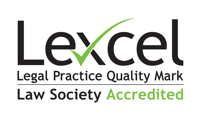
Legal Representation for TRA Hearings & Outcomes
Put your trust in Clifford Johnston & Co.
- Expert Teaching Regulation Agency Solicitors
- Lexcel and Law Society Accreditations
- Experts at Protecting Your Teaching Career
- Call us for TRA Legal Advice Today
TRA Hearings & Outcomes
If you have been referred to a Professional Conduct Panel by the Teaching Regulation Agency (TRA), the consequences can be life changing. A TRA Hearing may result in a Prohibition Order, which could prevent you from teaching indefinitely. The process is formal, complex, and often overwhelming, making expert legal representation essential to protect your career and reputation.
At Clifford Johnston & Co., our specialist TRA Lawyers have extensive experience representing teachers at TRA hearings. We provide clear guidance, strategic insight, and robust representation at every stage of the process, ensuring you are fully supported and prepared for your hearing.
Allegations of misconduct can have a profound impact but, with our expertise, we can help you challenge the allegations, present a strong defence, and work towards the best possible outcome.
With offices in Stockport and Manchester, we act for teachers across England and Wales, offering nationwide legal support. If you are facing a TRA hearing, contact us today for expert legal advice.
What Happens at TRA Hearing?
Being referred to a Professional Conduct Panel hearing is a serious matter. These hearings are formal legal proceedings where the panel reviews evidence to determine whether your actions constitute:
- Unacceptable professional conduct
- Conduct that may bring the profession into disrepute.
If the panel finds against you, the impact on your career and reputation can be severe. Without expert legal representation, you risk facing sanctions that could end your ability to teach. Seeking specialist legal advice as early as possible is essential to ensure that your defence is prepared thoroughly and that your rights are protected throughout the hearing.
Referral to the Professional Conduct Panel
Once a case has been referred to a Professional Conduct Panel, the TRA will notify you of the hearing date and provide case materials outlining the allegations against you. This marks the beginning of the formal proceedings which can determine the future of your teaching career.
Pre-Hearing Preparation
The period before the hearing is critical. This is your opportunity to challenge the case against you, submit evidence, and build your defence.
Interim Prohibition Orders (IPO)
An IPO can be made only if the Secretary of State considers that it is necessary and proportionate in the public interest, and where there is a real risk of harm to children and/or other members of the public. Decisions about whether to make an IPO will be taken on a case-by-case basis, taking account of the nature and severity of the allegation and the available evidence, including any information as to the risk of repetition. The seriousness of the risk to pupils and the public, should the individual be allowed to continue to teach unsupervised, should be balanced against the interests of the teacher, having regard to the need for proportionality and the adverse consequences for the practice and reputation of the teacher if an IPO is imposed.
If the TRA seeks an IPO, it will:
- notify you that they are considering an IPO.
- give you 10 working days to respond and submit evidence arguing against it.
An IPO would prevent you from being employed or engaged to carry out teaching work until the case against you has concluded.
While you cannot appeal an IPO, a teacher may make a written application to the TRA to review it within 6 months of it being imposed, and at subsequent 6 monthly intervals. If the TRA is satisfied that it is no longer in the public interest to prohibit you from teaching pending the conclusion of your case, it will lift the IPO.
Early legal advice is crucial at this stage. A strong response could prevent an unfair suspension.
The Decision Maker Process – The 28-Day Response Period
If the TRA decides to proceed with an investigation, they will notify you in writing and provide details of the allegations.
The TRA will then, via their solicitors, send you the specific allegations and all the evidence that they have obtained, and you will be given 28 days to respond. The TRA usually agree an extension of this timeframe.
Once the deadline for a response has passed, the case will be considered by a Decision-Maker. The Decision-Maker will take into account all the documentation received to date, including information from the referrer, you and any other party that the TRA has contacted to collate a full picture of the allegations, such as previous employers and/or the police.
The TRA may seek additional evidence by making reasonable requests of relevant parties for further information. It may also seek advice from relevant experts where this is necessary to assist the investigation.
As a result of its investigation, the TRA will decide:
- that there is no case for you to answer; or
- that there is a case to answer and to refer the case to a Professional Conduct Panel.
Where a case has been referred to a Professional Conduct Panel, the decision letter from the TRA will:
- inform the teacher that an allegation against them has been referred to a Professional Conduct Panel; and
- specify the details of the allegation that has been referred to the Panel.
The teacher will be given two weeks from the date of the decision letter to provide the TRA with a written response identifying whether they admit the alleged facts and, if so, whether they accept that it amounts to unacceptable professional conduct, conduct that may bring the profession into disrepute or conviction, at any time, of a relevant offence. If the teacher admits the matters, then they may request that the allegation be considered without a hearing.
The case will be considered at a hearing if the teacher does not respond to the decision letter and/or does not do all of the following:
- request that the allegation be considered without a hearing;
- admit the matters;
- agree a statement of facts – this only applies when a teacher accepts the allegations and that they amounts to unacceptable professional conduct and/or conduct that may bring the profession into disrepute
Seeking legal advice as early as possible can make a significant difference to the outcome of your case. Our TRA Hearings specialists will analyse the case bundle, identifying weaknesses in the TRA’s evidence and any procedural errors that could be challenged. We will help you prepare a well-structured legal defence that directly addresses the key issues.
The TRA Hearing
Once the TRA determines that a case should proceed to a Professional Conduct Panel hearing, both the teacher and the referring party will be formally notified. The hearing is a legal tribunal where evidence is presented, witnesses give evidence, and the Panel decides whether any of the facts found proved amounts to unacceptable professional misconduct and/or conduct which may bring the profession into disrepute.
TRA hearings are usually held in public, meaning members of the press and public may attend. However, if the case involves safeguarding issues or highly sensitive matters, the Panel may decide to hold part of the hearing in private.
Who Sits on the Professional Conduct Panel?
A Professional Conduct Panel is an independent tribunal appointed by the Secretary of State to assess cases of teacher misconduct. The Panel is made up of three members:
- A chairperson, responsible for overseeing the proceedings.
- A teacher panel member, who has professional experience in education.
- A layperson, who has no professional background in teaching and provides an independent perspective.
Additionally, a legal adviser is present to ensure the Panel follows proper legal procedures, but they do not take part in decision-making. The TRA will be represented by presenting officer, (usually a solicitor or barrister) who puts forward the case against the teacher, and a clerk, who manages the administrative aspects of the hearing.
The TRA Hearing Process
Teachers are not legally required to attend the hearing, but their absence will not prevent proceedings from taking place. Failing to attend may weaken their defence because they may not have the opportunity to challenge evidence, question witnesses, or present their case directly to the Panel.
1. Presentation of the Case
The hearing begins with the TRA’s Presenting Officer (a lawyer acting on behalf of the TRA), outlining the allegations and setting out the evidence against the teacher. This includes a summary of witness statements, documentary evidence, and any previous disciplinary findings.
The accused teacher, or their legal representative, can respond with an opening statement, setting out their defence and addressing key points of contention in the case.
2. Examination of Evidence and Witnesses
The TRA will present its case by calling witnesses to provide evidence. These witnesses may include school staff, students, parents, or other individuals with relevant information about the allegations. Each witness will give evidence in chief first, which means they will be asked questions by the presenting officer.
The teacher (or their legal representative) will then have the opportunity to cross-examine the witnesses, challenging inconsistencies and/or inaccuracies in their statements.
Once the TRA witnesses have given evidence, the teacher has the opportunity to present their case, which may include:
- Giving live evidence and explaining their version of events.
- Statements/evidence from supporting witnesses, such as colleagues or independent experts.
- Documentary evidence, including emails, lesson plans, performance evaluations, reports or character references.
3. Panel Questioning
Once the evidence has been presented, they may ask direct questions of both the teacher and the witnesses. This allows the Panel to clarify evidence, examine the credibility of statements, and explore any mitigating circumstances that may be relevant.
Teachers who choose to give live evidence should expect direct questioning from the Panel, particularly regarding their professional conduct and any steps they have taken to address concerns raised in the case.
4. Closing Submissions
The TRA’s Presenting Officer will summarise the case against the teacher, remind the Panel of the key evidence and explain why the Panel should find the facts proved.
The teacher (or their legal representative) will then deliver their closing arguments which may include challenging the TRA’s evidence, addressing any legal or procedural issues, and attempt to persuade the Panel why the facts should not be found proved.
TRA Outcome
After hearing all the evidence, the Professional Conduct Panel must reach a decision on three key issues:
Are the Allegations Proven?
The Panel must first determine whether the allegations have been proven. The Panel is required to be persuaded that the facts are more likely than not to be true: the facts need to be proven ‘on the balance of probabilities.’ The standard of proof is that applicable in any civil proceedings. In determining whether the burden is discharged, and in weighing the probabilities, the Panel should bear in mind that any future Panel must have regard to the inherent probability or improbability of the facts alleged. The more improbable the event, the stronger must be the evidence that it did occur before, on the balance of probability, its occurrence will be established.
Do the Proven Facts Amount to Serious Misconduct?
If the Panel finds the allegations proven, they must then decide whether the teacher’s actions constitute serious misconduct. Misconduct can fall into one or more of the following categories:
- Unacceptable professional conduct, where the teacher’s behaviour has fallen significantly below the standards expected of the profession.
- Conduct that may bring the profession into disrepute, where the teacher’s actions undermine public confidence in the teaching profession.
- A conviction for a relevant criminal offence, where the teacher has been found guilty of an offence that affects their suitability to continue working in education.
If the Panel determines that the proven allegations do not meet the threshold for professional misconduct, the case will be closed with no further action.
Should a Prohibition Order Be Recommended?
If the Panel finds that the teacher’s conduct amounts to any of the above types of misconduct, they will consider whether to recommend a Prohibition Order to the Secretary of State for Education. This is the most severe sanction available and prevents the teacher from working in the profession indefinitely. In deciding whether to recommend a Prohibition Order, the Panel must apply the principle of proportionality, and demonstrate that they have given careful consideration to whether an alternative recommendation is more appropriate. The Panel will then send its recommendation to the Secretary of State who will decide whether to adopt it.
In some cases, the Panel may recommend that the teacher be allowed to apply for any Prohibition Order to be set aside after a specified period, usually after a minimum of two years. If this option is granted, the teacher can apply for a review later to demonstrate that they are fit to return to the profession.
How Can We Help?
At Clifford Johnston & Co., we have extensive experience defending teachers in TRA investigations and Professional Conduct Panel hearings. Our specialist solicitors provide strategic advice, robust representation, and unwavering support throughout the entire process. We can assist you at every stage, including:
- Preparing and drafting a written response during the initial investigation
- Collating evidence to challenge the TRA’s case
- Preparing written representations against an Interim Prohibition Order
- Responding to a notice of referral to a Professional Conduct Panel
- Negotiating the statement of agreed facts and managing the case
- Representation at hearings before the Professional Conduct Panel
- Advising on appeals against decisions
- Applying for the removal/review of a Prohibition Order
Every case is different, and we tailor our approach to your individual circumstances. Whether you are at the investigation stage or have already been referred to a Professional Conduct Panel, seeking legal advice at the earliest opportunity can significantly impact the outcome of your case.
Frequently Asked Questions
What happens if I don’t attend my TRA hearing?
You are not legally required to attend your hearing, but the Professional Conduct Panel may proceed in your absence. If you do not attend, you may not be able to challenge evidence, cross-examine witnesses, nor present your defence in person, which could weaken your case. While written representations can be submitted, attending the hearing allows you to fully engage with the process and respond directly to any issues raised.
Can I continue teaching while waiting for my TRA hearing?
Yes, unless the Secretary of State imposes an Interim Prohibition Order (IPO). An IPO suspends you from teaching before your case has concluded. If the TRA is considering an IPO, you will be given 10 working days to respond and submit evidence arguing against it. If an IPO is not imposed, you can continue working whilst the investigation is ongoing.
If I receive a Prohibition Order, can I appeal or return to teaching?
You can appeal against the findings of the Panel and the imposition of a Prohibition Order to the High Court. This must be done within 28 days of the Secretary of State’s decision.
In addition, if a Prohibition Order is imposed, you may be able to apply for it to be set aside after a specified period. However, this is not guaranteed, and some Prohibition Orders are indefinite. You would need to provide your employment history since the Prohibition Order was imposed, character referees, details of training courses you have attended, in addition to a statement setting out your reasons to set aside the order. Your case will then be listed for a ‘set aside hearing’. After the hearing has concluded, the panel will make a recommendation to the Secretary of State. The onus is on the teacher to prove to the panel that they are suitable to be allowed to teach again.
Contact Clifford Johnston & Co
If you are facing a TRA hearing, securing the right legal support early can significantly impact the outcome.
With offices in Manchester and Stockport, our Regulatory Law Solicitors represent teachers nationwide in TRA investigations and hearings. Our reputation is built on decades of experience, legal expertise, and a commitment to protecting our clients’ futures.
We are often instructed by the National Association of Headteachers to represent its members.
Contact us today for expert legal advice and representation.

Need some professional advice?
Do you have any issues that you are worried about? Contact our professional team for a free, no-obligation informal discussion, where we can discuss your particular requirements in greater detail.













